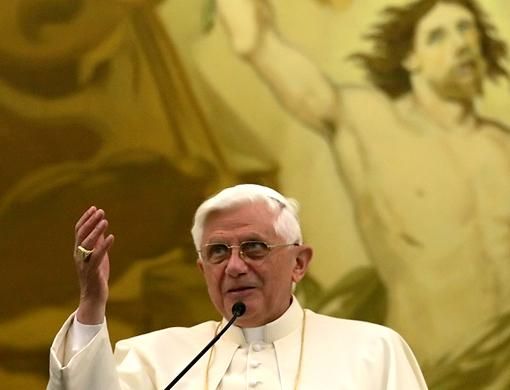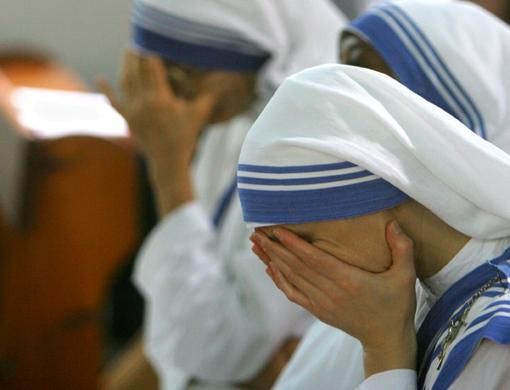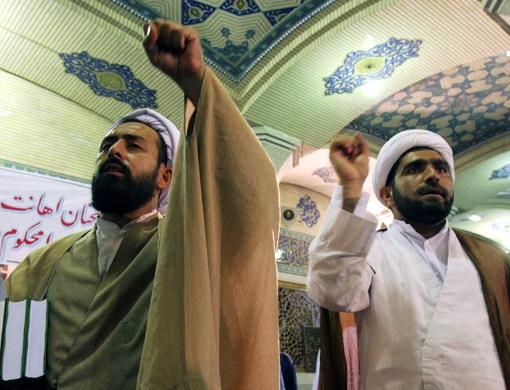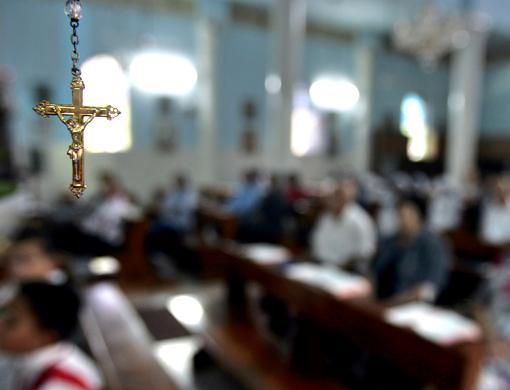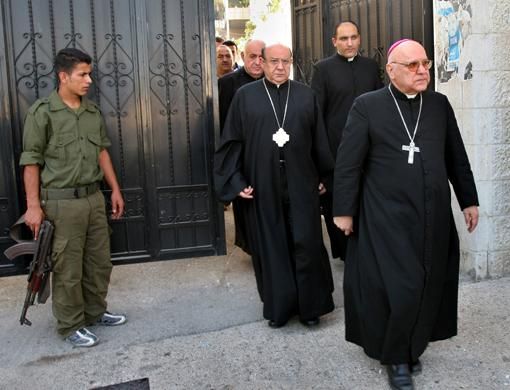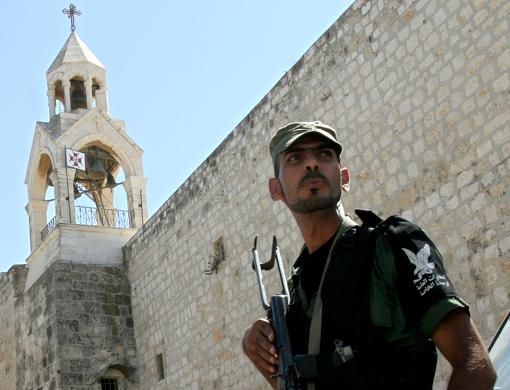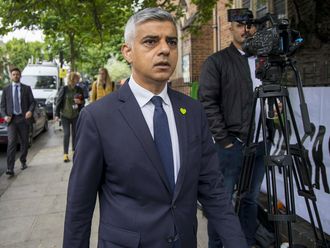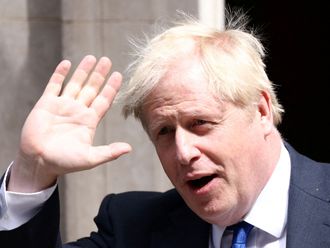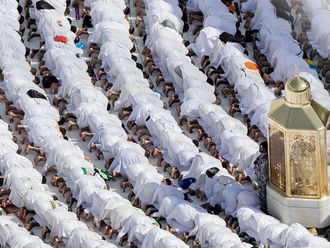Rome: Pope Benedict tried on Sunday to calm Muslim anger at his remarks on Islam, saying he was "deeply sorry" about the reaction and that the medieval quotes he used on holy war did not reflect his personal views.
The head of the world's 1.1 billion Roman Catholics stopped short of a full apology emanded by some Muslims for a speech they say portrayed Islam as tainted by violence.
It was unclear whether the Pontiff's words would end the backlash.
Egypt's Muslim Brotherhood said it was "a sufficient apology", but in Somalia an Italian nun was killed on Sunday in an attack one Islamist source said may be linked to the Pope crisis.
"I am deeply sorry for the reactions in some countries to a few passages of my address at the University of Regensburg, which were considered offensive to the sensibility of Muslims," he told pilgrims at his Castelgandolfo summer residence.
"These in fact were a quotation from a medieval text, which do not in any way express my personal thought," the Pope said at his weekly Angelus prayer.
"I hope this serves to appease hearts and to clarify the true meaning of my address, which in its totality was and is an invitation to frank and sincere dialogue, with mutual respect."
The German-born Pope was interrupted by applause from the pilgrims at Castelgandolfo, in the hills outside Rome, and he smiled and joked with them about the torrential rain.
Benedict looked relaxed as he greeted the pilgrims standing in pouring rain.
But he faces the worst crisis since, as Cardinal Joseph Ratzinger, he was elected Pope in April last year.
His comments followed a Vatican statement on Saturday attempting to clarify the meaning of the academic speech made in Germany on Tuesday.
The heads of Muslim countries have expressed dismay at what they see as offensive comments, religious leaders have called it the start of a new Christian crusade against Islam and seven churches were attacked in the West Bank.
Germany's Chancellor Angela Merkel and politicians in Italy rushed to Benedict's defence, saying he had been misunderstood and had really being making an appeal for dialogue.
But angry Muslim leaders flung what they saw as allegations of violence back at the West, referring to the medieval crusades against Islam and to the U.S.-led wars in Iraq and Afghanistan, which have fanned the flames of Muslim resentment.
In Iran at least 500 theological school students protested in the holy city of Qom on Sunday and influential cleric Ahmad Khatami warned that if the Pope did not apologise, "Muslims' outcry will continue until he fully regrets his remarks".
"The Pope should fall on his knees in front of a senior Muslim cleric and try to understand Islam," said Khatami.
In a sign that some Muslims have been mollified, the head of Turkey's religious affairs directorate welcomed the statement from the Vatican on Saturday.
Ali Bardakoglu, who had previously called the Pope's comments "extremely regrettable", told a German paper it was "good that the Pope has now apologised".
The uproar had raised questions about whether a papal visit to Turkey in November could go ahead, but the Turkish government, while calling his remarks "ugly", said there were no
plans to call it off.
The church has officially encouraged dialogue with Islam and other non-Christian faiths since the Second Vatican Council that ended in 1965. Benedict has sought dialogue with Islam - but he also stresses Europe's Christian roots and, before elected, said he opposed mainly-Muslim Turkey joining the European Union.
He may have come closer than any modern-day pope to saying sorry in public for something he has said.
His predecessor John Paul II made public apologies for the church's historic errors, such as the Inquisition and its failings in the Second World War.
The anger and violence - including attacks on seven churches in the West Bank and Gaza - is one of the biggest international crisis involving the Vatican in decades, and the Vatican appeared determined to move quickly to try to defuse anger.
On Saturday, a Vatican statement said the pope "sincerely regrets" that Muslims were offended by his remarks.
After the statement on Saturday, senior Indian Muslim clerics asked their supporters to call off planned protests.
But Muslims in Jordan said that was not enough and called on the pope to personally apologise for his remarks, and Indonesian President Susilo Bambang Yudhoyono called the
pope's remarks in Germany "unwise and inappropriate," the Kompas daily reported.
And in an unusual step, the Vatican's press office released translations in English and French of the pope personally saying Sunday he was sorry about the remarks.
The pope's Sunday remarks, delivered in Italian, typically are not translated by the Vatican.
Russian President Vladimir Putin earlier urged world religious leaders to show "responsibility and restraint" to avoid what he called "extremes" in relations between faiths.
"We understand perfectly how sensitive this sphere is. I think it would be right if we call for responsibility and restraint from the leaders of all world faiths," he said during a meeting with parliamentary leaders from Group of Eight nations in the Russian resort city of Sochi.
Police headquarters across Italy were ordered to tighten security at potential Catholic targets, the Italian news agency ANSA reported.
In Castel Gandolfo, visitors were scanned with metal-detecting wands, heightened Vatican security measures employed since the September 11 terror attacks of 2001. But in a sign of even more security following the furore over the remarks, some pilgrims were patted down by Italian police, and some metal-tipped umbrellas and bottles of liquid were
confiscated from faithful waiting to enter the courtyard.
Police sharpshooters kept watch from a city hall balcony on the square and other officers, dressed like tourists, filmed the crowd with video cameras.
However, at the Vatican, no additional security measures could be seen as tourists strolled across St. Peter's Square.
Italy's interior minister, Giuliano Amato, told Italian state radio that tensions over Benedict's remarks wouldn't result in any significant security worries. He noted that suspected terrorist cells, under surveillance in Italy, were considered to have their potential terrorist interest aimed "outside of Italy."


